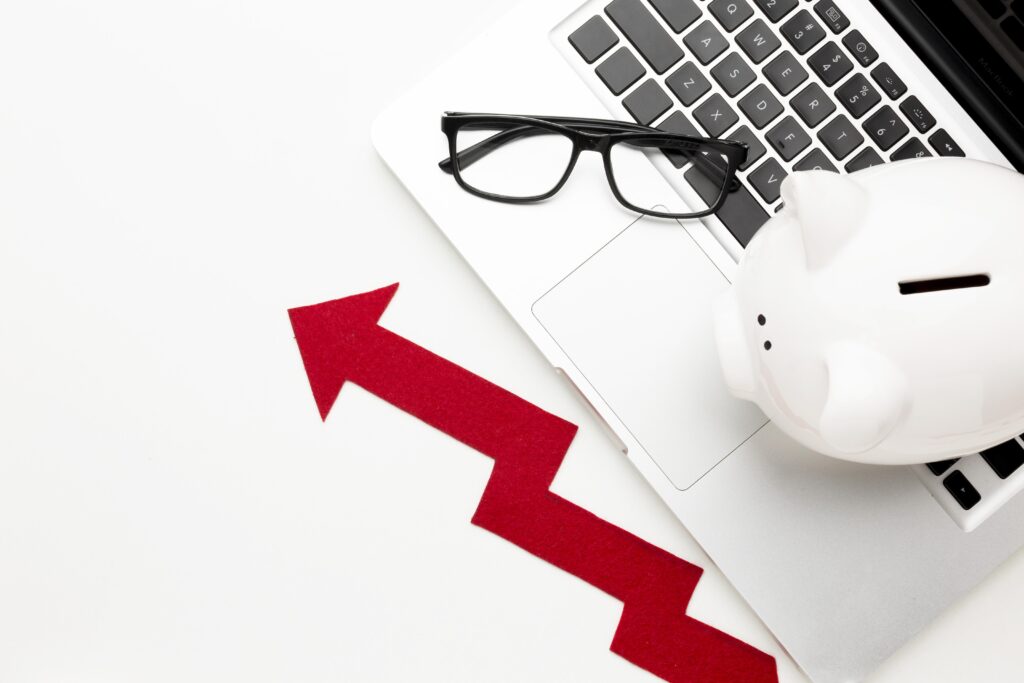Inflation also referred as general price hike has potentially significant impact on investors and their investment strategy. To understand this crucial correlation is highly imperative for taking well informed investment decisions. Let’s discuss how inflation impact investors in detail:
1. Shrinkage in Purchasing Power:
General Increase in Prices with the passage of time is referred as Inflation, that significantly reduce the purchasing power of money.
Decrease in purchasing power in past and fear of further decline in future, has significant impact on market sentiments. To cope with increasing general prices investors, require higher margins in order to keep their buying power intact. For the sake of example if on YOY (year on year) basis inflation is 5%, an investment should offer a yield over 5% to preserve its intrinsic value.
2. Effect on Different Asset Classes:
Equity Stocks: Holders of equities have some sort of hedge against price hike since corporate sector can increase prices to offer lucrative returns. Equities can provide a hedge against inflation since companies can often raise prices to match inflation. On the other hand, higher price hike trends usually results in higher interest rates that have a counter impact on share prices.
Bonds: Bonds and other fixed-income investments are relatively vulnerable to general price hikes. price escalation can erode the returns of bonds because the markup payments are fixed. however bonds like TIPS (Treasury Inflation-Protected Securities), can offer safety against Swallowing prices.
Real Estate: Property values and rental incomes often rise with price hike, making real estate a good hedge against ballooned prices.
Commodities: Commodities like gold and oil often adjust their price to respond price hike impacts. So, investment in commodities and commodities-based assets is considered safe in facing price hikes.
3. Markup Rates:
Central banks opt to raise interest rates to combat high escalation in prices. Higher interest rates on the other hands lead to decreased bond prices and make borrowing more costly and finally results in limiting economic growth.
Impact on Investments: higher interest rates impact negatively on both bonds and stocks. Bond losses the price because of rise in yields. Stock loses their attractiveness and face bearish trend as the profitability is challenged due to higher interest cost

4. Inflation Expectations:
Market Sentiments are highly driven by Investor expectations about future price fluctuations. These expectations finally influence the asset prices. If investors are foreseeing higher escalation, then definitely, they will ask for higher yield on bonds that will be led to drop prices due to bearish sentiments. The investor can also shift their investment to assets that perform well during inflationary times.
5. Diversification Strategies:
Asset Allocation: Diversifying investments across various asset classes can help manage risk related to price hike. A mix of stocks, bonds, real estate, and commodities can provide a balanced approach to mitigate the impact of inflation.
Geographical Diversification: Investing in international markets can also provide a hedge against domestic price hike, as different countries experience different price hike pressures.
6. Sector-Specific Impact:
Some sectors are more prone to inflationary impact as compare to others like cyclical sectors (energy, materials and consumer staples) tend to perform well during inflation as they can transfer additional prices to consumers.
On the other hand, non-cyclical sectors (utilities, healthcare etc.) may be more volatile due to there static demand while the operating costs will be surged due to increase in prices
7. Instruments to Hedge Inflation:
Treasury Inflation-Protected Securities (TIP) provide returns that are adjustable with general price hike and can preserve the buying power of investor.
Direct investments in commodities or real assets like real estate can serve as effective hedges.
Investing in companies with pricing power or those that operate in inflation-sensitive industries can provide protection.
Conclusion:
By conceptualizing these dynamics investors can create compelling strategies that can be effective in challenging times of rising inflation. Further, these will help investors to keep their portfolio robust in emerging economic conditions.


1 thought on “7 Impacts Of Inflation on Investors”